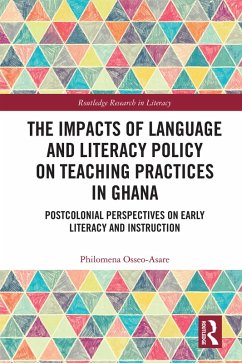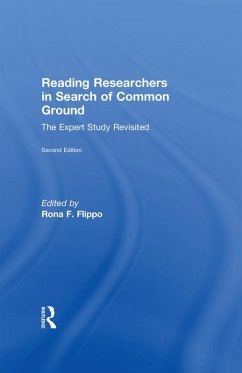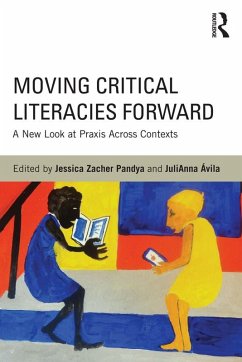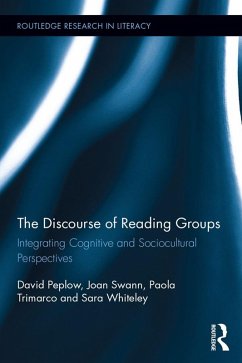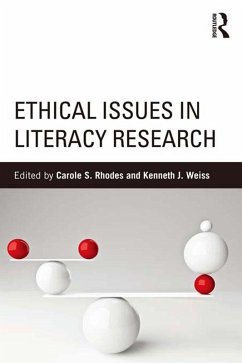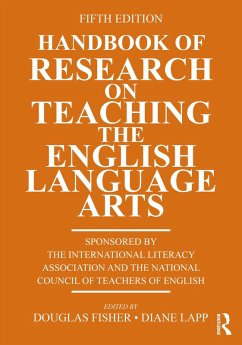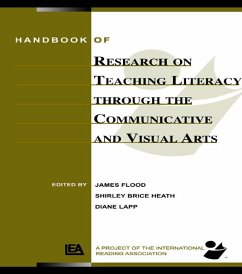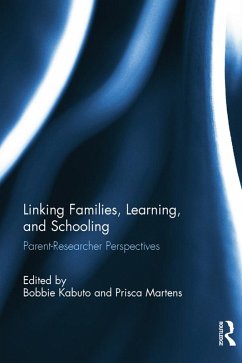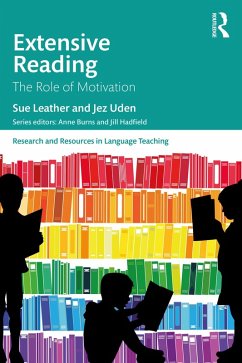
Reading at a Crossroads? (eBook, ePUB)
Disjunctures and Continuities in Current Conceptions and Practices
Redaktion: Spiro, Rand J.; Thompson, Penny; Morsink, Paul M.; Hagerman, Michelle Schira; Deschryver, Michael
Versandkostenfrei!
Sofort per Download lieferbar
48,95 €
inkl. MwSt.
Weitere Ausgaben:

PAYBACK Punkte
24 °P sammeln!
The Internet is transforming the experience of reading and learning-through-reading. Is this transformation effecting a radical change in reading processes as readers synthesize understandings from fragments across multiple texts? Or, conversely, is the Internet merely a new place to use the same reading skills and processes developed through experience with traditional print-based media? Are the changes in reading processes a matter of degree, or are they fundamentally new? And if so, how must reading theory, research, and instruction adjust?This volume brings together distinguished experts f...
The Internet is transforming the experience of reading and learning-through-reading. Is this transformation effecting a radical change in reading processes as readers synthesize understandings from fragments across multiple texts? Or, conversely, is the Internet merely a new place to use the same reading skills and processes developed through experience with traditional print-based media? Are the changes in reading processes a matter of degree, or are they fundamentally new? And if so, how must reading theory, research, and instruction adjust?
This volume brings together distinguished experts from the fields of reading research, teacher education, educational psychology, cognitive science, rhetoric and composition, digital humanities, and educational technology to address these questions. Every question is not answered in every chapter. How could they be? But every contributor has many thoughtful things to say about a subset of these important questions. Together, they add up to a comprehensive response to the issues the field faces as it approaches what may well be-or not -a crossroads. A website devoted to extending discussion around the book in creative (and disjunctive) ways [readingatacrossroads.net] moves it beyond the printed page.
This volume brings together distinguished experts from the fields of reading research, teacher education, educational psychology, cognitive science, rhetoric and composition, digital humanities, and educational technology to address these questions. Every question is not answered in every chapter. How could they be? But every contributor has many thoughtful things to say about a subset of these important questions. Together, they add up to a comprehensive response to the issues the field faces as it approaches what may well be-or not -a crossroads. A website devoted to extending discussion around the book in creative (and disjunctive) ways [readingatacrossroads.net] moves it beyond the printed page.
Dieser Download kann aus rechtlichen Gründen nur mit Rechnungsadresse in A, B, BG, CY, CZ, D, DK, EW, E, FIN, F, GR, HR, H, IRL, I, LT, L, LR, M, NL, PL, P, R, S, SLO, SK ausgeliefert werden.




